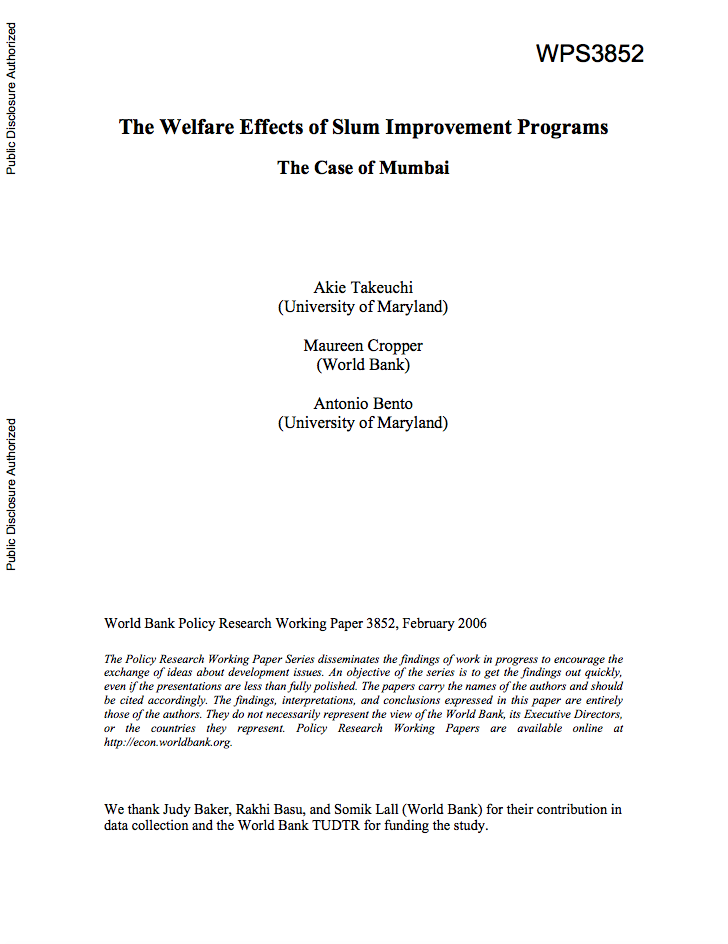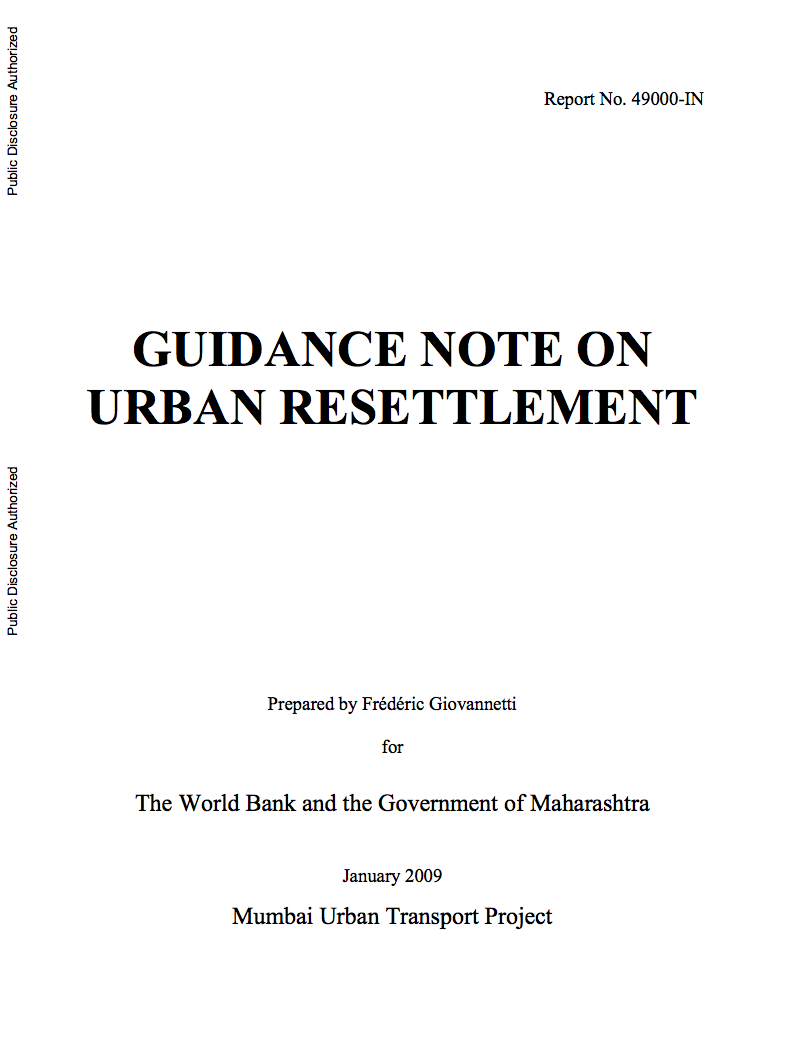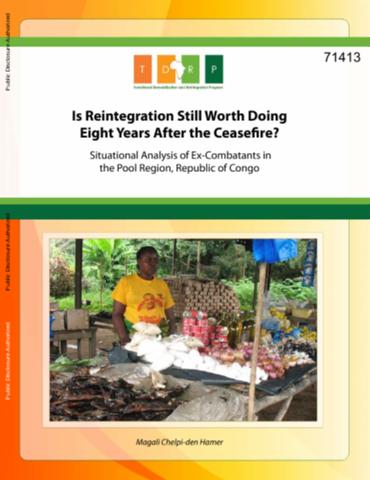Notes on the Economic Evaluation of Transport Projects
Experience has shown that money
compensation payments to individual citizens are ineffective
when used alone as a means to achieve the Bank's aims
and World Bank for evidence on the Bank's experience].
Instead, the Bank's advice is that compensation
payments should be a part of a wider, coordinated package of
development assistance. It is not the purpose of this Note
to describe how such a package should be developed, or




